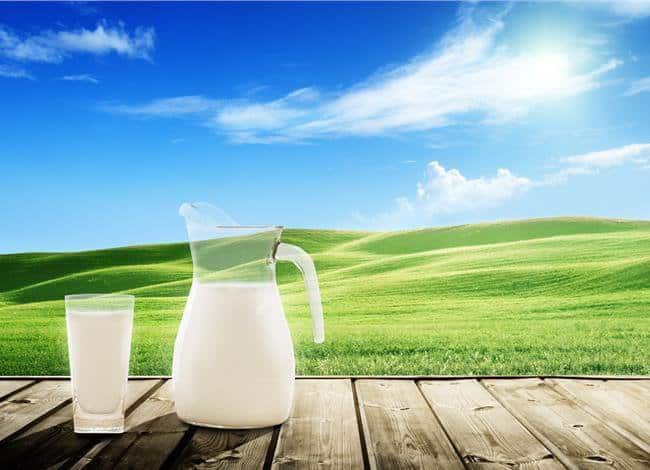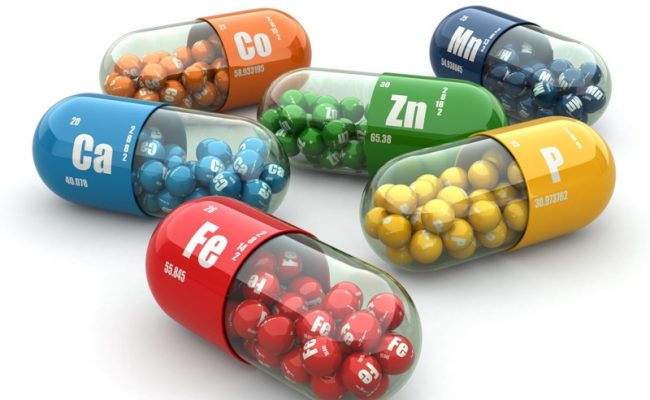
Dairy foods are rich in many nutrients including calcium, potassium, protein and vitamin D. However, some dairy products can be high in calories, fat and/or sugar which is not good. Dairy would not be good to eat for people who are allergic to components in dairy like lactose, casein or whey.
Here are some reasons why dairy is good for you and certain instances where dairy could be considered bad for you.
Bone health
Dairy products, like milk, yogurt, cheese, are naturally high in calcium. Calcium is needed for strong bones, and not getting enough calcium could increase risk for osteoporosis. According to a 2011 article from Journal of the American Dietetic Association, the elderly particularly are at increased risk for not getting enough dietary calcium.
Eight ounces of milk or yogurt has around 300 mg of calcium, and one ounce of cheese or ½ c of ricotta cheese has around 100-150mg of calcium. The recommended daily intake of calcium for men and women 19-50 years old need 1,000 mg of calcium daily. (See also: 10 ways to get calcium without dairy)
Dairy products are not naturally a source of vitamin D, but since the 1930’s milk has been fortified with vitamin D to reduce the prevalence of rickets (softening of the bones). Besides milk, yogurt is usually fortified with vitamin D as well.
Vitamin D assists in calcium absorption and regulating blood calcium levels. Recent research studies have also suggested vitamin D plays a role in cardiovascular system, muscles, immune health and brain function.
One cup of milk provides about 30% Daily Value of vitamin D needs. Men and women 19-50 years old need 15 mcg or 600 International Units (IU). Some health professionals suggest people living in Northern climates increase risk for vitamin D deficiency.
Potassium
Potassium is involved with fluid balance, decreasing blood pressure, nerve transmission and muscle contraction. Most Americans do not get enough potassium. Potassium is found in fruits, vegetables and dairy products.
One cup of milk provides about 366 mg of potassium, 1 cup of yogurt provides about 490 mg of potassium and ½ cup of cottage cheese provides about 118 mg of potassium. Adults need 4.7 g of potassium per day according to the Institute of Medicine.
Sports Performance and weight loss
Dairy products are rich in the amino acid leucine. Leucine is an amino acid that especially can help build muscle, and is sometimes used by athletes as a muscle building supplement. The carbohydrate and protein ratio in milk, specifically chocolate milk, has been shown in research studies to be a useful recovery tool after exercise.
Since dairy products are high in calcium, dairy products can be beneficial for younger athletes to build strong bones.
Some research studies have shown that eating dairy products could help with weight loss. For example, a 2004 study in Obesity studied 32 obese adults were put on a weight loss diet for 24 weeks that either contained a low amount of calcium, a high calcium diet from a calcium supplement or a high dairy diet. The group who had the high dairy diet had significantly more fat loss compared to the other 2 groups.
Is dairy bad?
As mentioned, there are many health benefits in dairy. Some instances where dairy could be “bad” would be if someone had an allergy to a dairy component. Some people are also concerned about the added hormones cows can receive, like recombinant bovine growth hormone (RBGH).
RBGH is used to increase muscle mass in cows and increase milk production. The effects of eating/drinking dairy products from cows that are given RBGH are not fully known, and opinions are mixed if there are negative effects to humans. However, more and more dairy products are labeled as being made without adding RBGH.
If someone can’t eat or doesn’t want to eat dairy products, it is important to supplement the diet with nutrients found in dairy products. For example, other foods besides dairy that contain calcium include sardines, soy products, some cereals or orange juices and leafy green vegetables.
Some dairy products are high in calories and sweetened yogurts, milkshakes and other dairy based desserts are high in sugar. Choosing plain, lower fat dairy products is the healthiest option.
Conclusion
In general, dairy products are high in protein, calcium, vitamin D and potassium. Some Americans don’t get enough vitamin D and potassium, so adding dairy products can help reach daily intakes. Elderly adults especially are at increased risk for not getting enough calcium.
Dairy products are rich in the amino acid leucine, which is beneficial for building muscle, and can be used in muscle recovery after exercise. Not all dairy products are healthy; high calorie and high sugar dairy products should be limited.
References used in this article










